When Scali met Feklisov: The lunch that saved the world from nuclear disaster
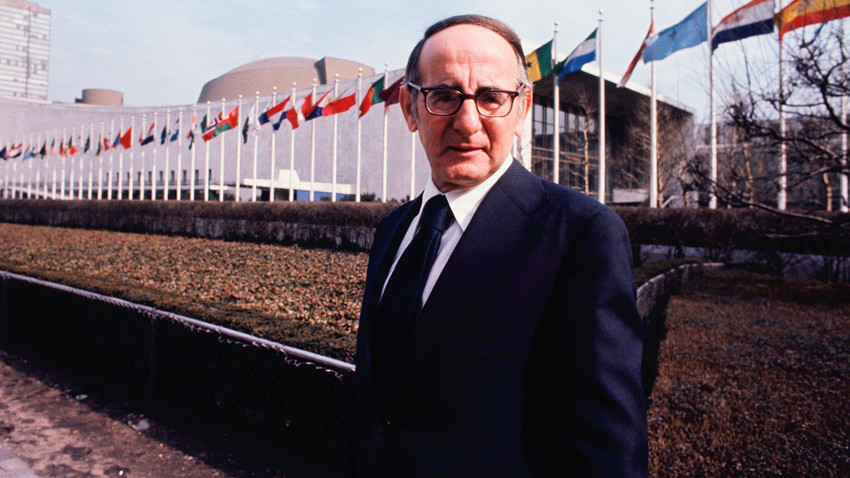
John Scali from ABC TV, a man who, along with a Soviet resident, helped to save the world in 1962.
Getty ImagesDifficult as it is to believe, two men in Washington who officially had nothing to do with either Cuba or Soviet missiles played an important role in the peaceful resolution of the Cuban Missile Crisis. They were an American correspondent for ABC named John A. Scali and a Soviet intelligence officer, officially employed as a counselor at the USSR embassy, named Alexander Feklisov.
Colonel-General Fyodor Ladygin writes in his memoirs: "The president's brother, Robert Kennedy, decided that a new
Missiles and a pork chop
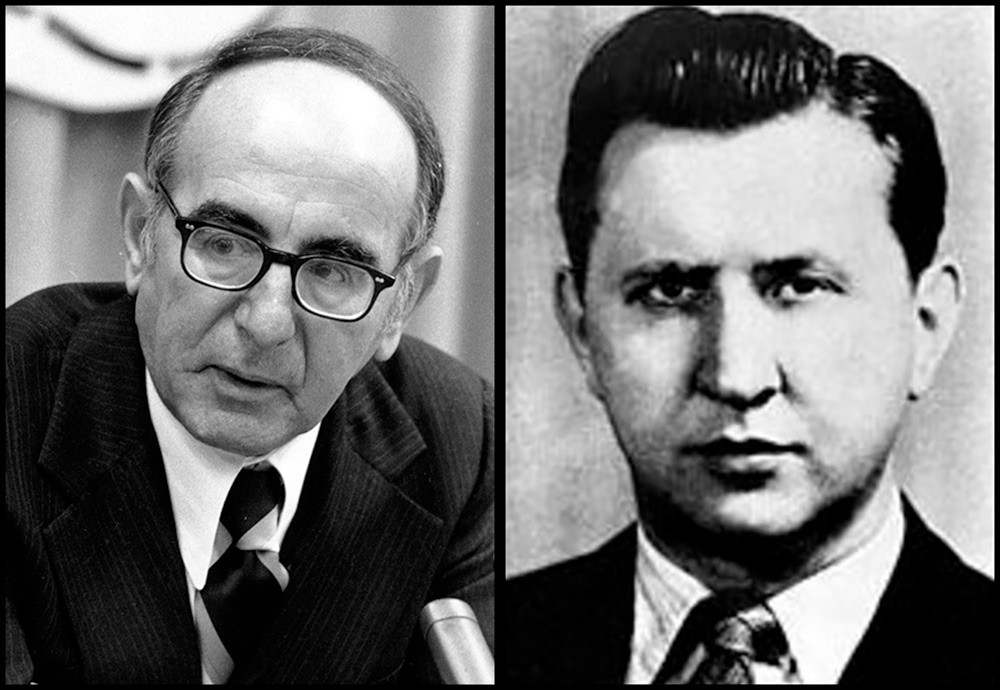
John Scali and Alexander Feklisov.
AP; Russia's Foreign Intelligence Service/APThe two men met at the Occidental restaurant, two blocks from the White House, and, having ordered their food, got straight to the point: War seemed about to break out. "Scali looked agitated," Feklisov recalled. "Without any preamble, he started accusing Khrushchev of a policy of aggression… I reminded him that it was his country that was trying to surround the USSR with a network of military bases and was building up anti-Soviet military blocs…"
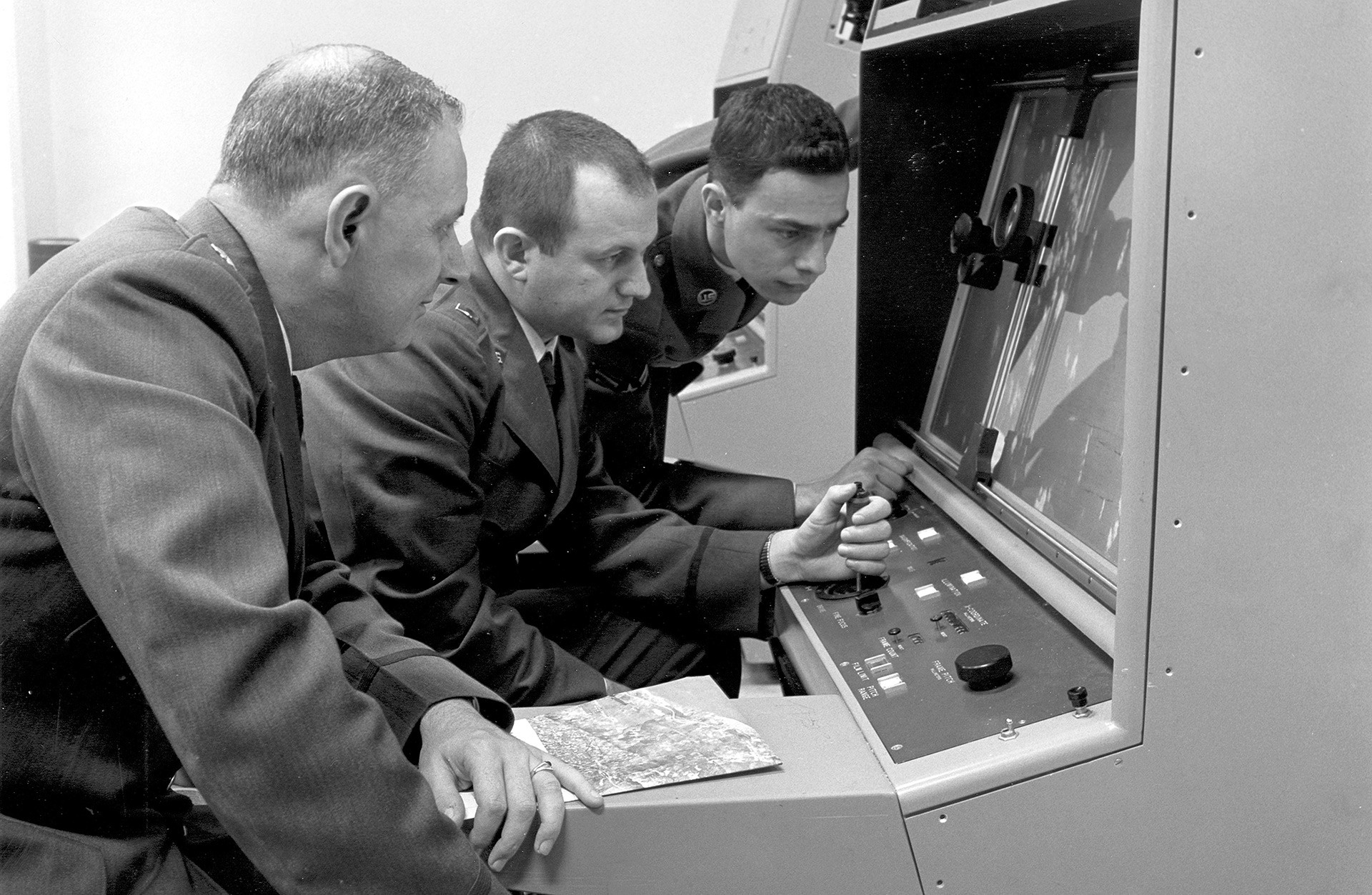
Strategic Air Command personnel interpreting reconnaissance photo during the Cuban Missile Crisis, 1962.
Global Look PressAccording to Scali, Feklisov suggested a solution: "He then said, 'There might be a way out; what would you think of a proposition whereby we would promise to remove our missiles under United Nations inspection?" Scali replied he didn't know but would be willing to try and find out. And given that the TV presenter was a good friend to the Kennedy brothers, he could act as a mediator.
The rest of the meal was eaten in silence. Scali recalled that Feklisov was so preoccupied that he accidentally took Scali's crab cakes and the latter ended up with the pork chop Feklisov had ordered. In order not to further aggravate an already intense international situation, Scali pretended not to notice.
Secret talks
Feklisov and Scali met again several times and these meetings played a crucial role in reaching a compromise. Both informed their governments directly of the conversations, bypassing official diplomatic channels. This secret informal communication allowed the leaders of the U.S. and the Soviet Union to avoid being accused of making too many concessions and appeasing the enemy
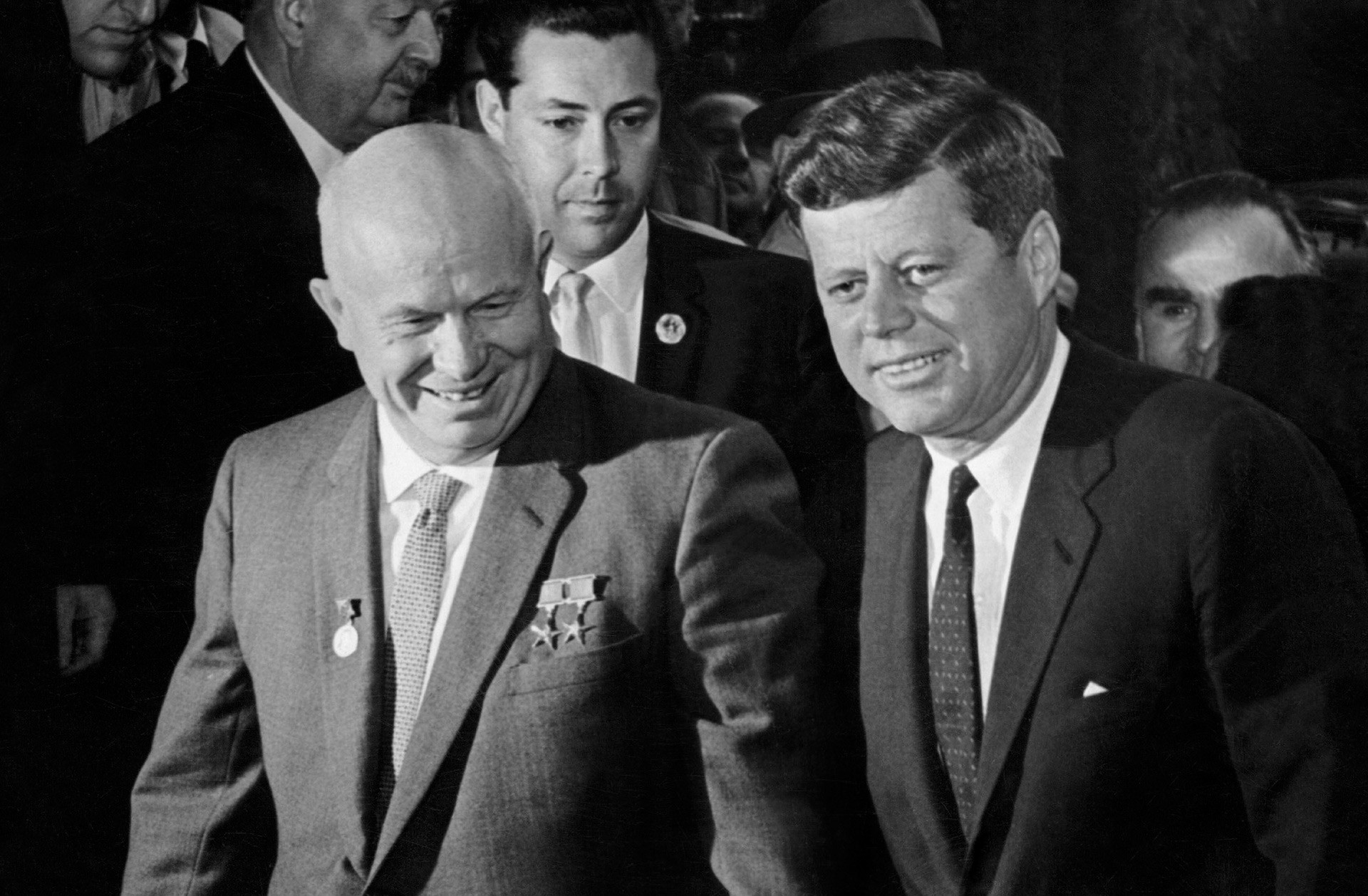
Nikita Khrushchev and John F. Kennedy - Feklisov and Scali were communicating on their behalf, in fact.
Getty ImagesNuclear war called off
It was a great risk for Feklisov himself because Khrushchev had not authorized him to talk of the possible capture of West Berlin. He had improvised, acting at his own risk and on with all responsibility on his shoulders, but
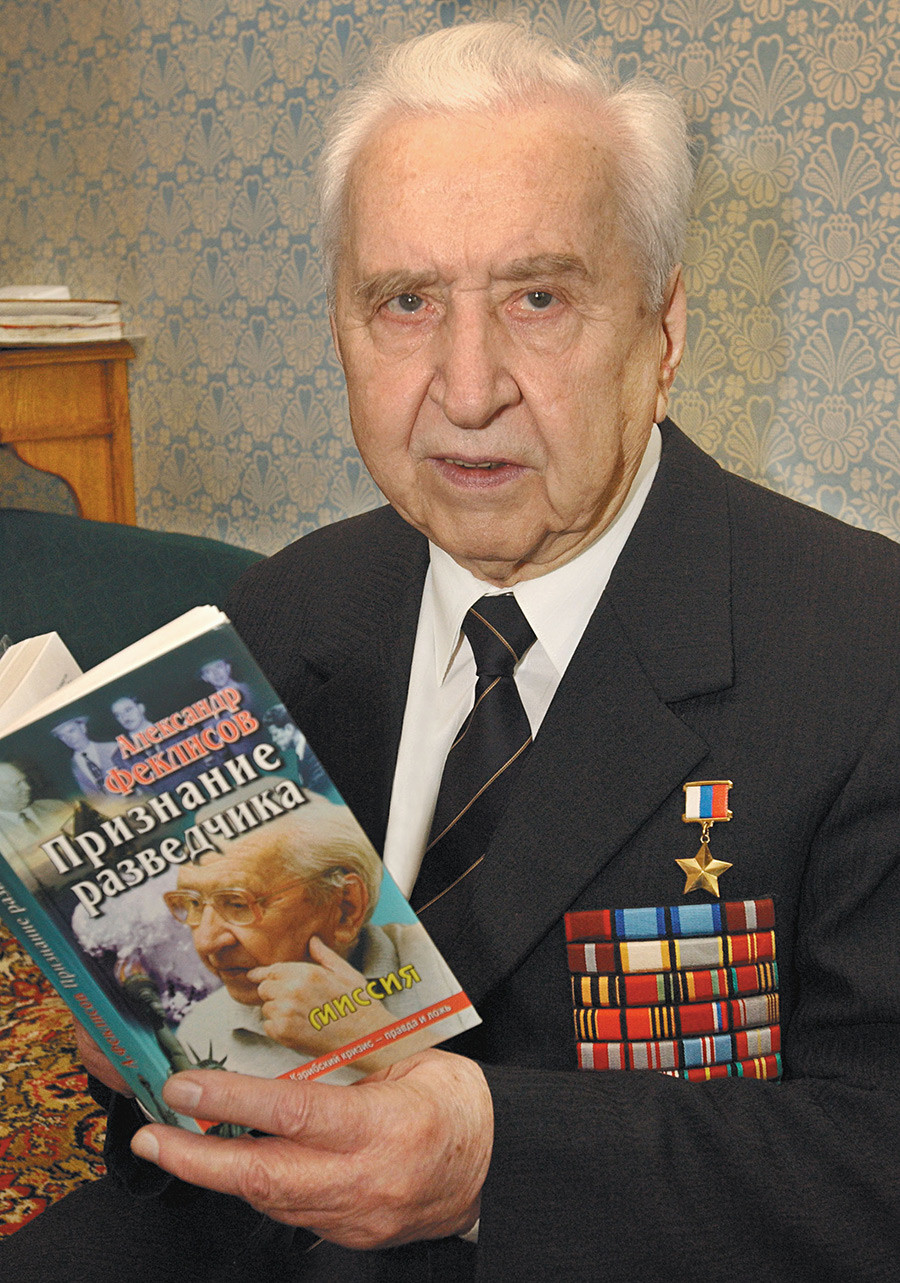
Alexander Feklisov, decades after the solution of the Cuban missile crisis, with a book of memoirs in his hands.
Yuri Mashkov/TASSNext came a letter from Khrushchev to Kennedy in which the Soviet leader assured the American president that it was with "respect and trust" that he understood Kennedy's promise that the U.S. and its allies would not invade Cuba and, in light of this, the USSR was withdrawing its missiles from the island: "We have just issued orders for these weapons to be dismantled and removed.”
In fact, all agreements between Kennedy and Khrushchev were verbal, but the sides took each other's word for it, and all the promises were met.
Remembrance
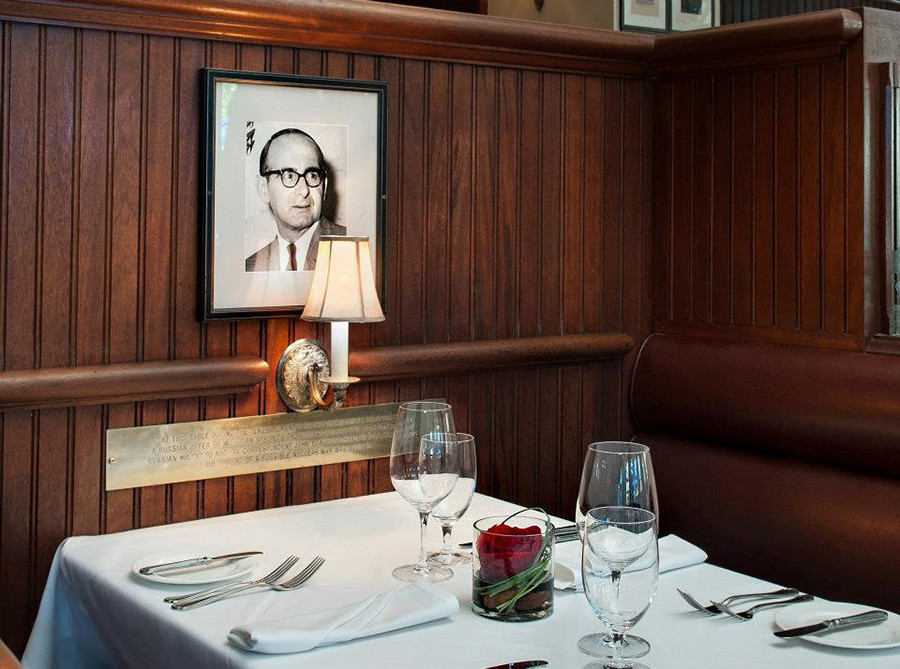
Portrait of John Scali in the Occidental restaurant, Washington DC.
Occidental Grill & SeafoodJohn Scali died in 1995 in Washington, and Alexander Feklisov died in 2007 in Moscow. Neither became famous, but both went through their lives with the knowledge that they had helped the world avert disaster.
A plaque reading as follows still hangs in the Occidental Restaurant in Washington: "During the tense moments of the Cuban missile crisis (October 1962) a Russian offer to withdraw missiles from Cuba was passed by the mysterious Russian 'Mr. X' to ABC-TV correspondent John Scali. On the basis of this meeting the threat of a possible nuclear war was avoided.”
Want to know how did the Soviets put its missiles in Cuba in the first place? Of
If using any of Russia Beyond's content, partly or in full, always provide an active hyperlink to the original material.
Subscribe
to our newsletter!
Get the week's best stories straight to your inbox